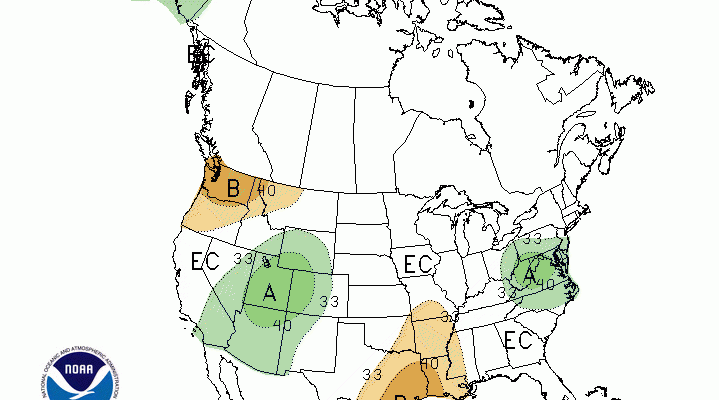-

Commercial oystering in the Southeast has been around for a long time, and most states have a big industry in producing oysters. But in Georgia, only about 32,000 pounds of oysters were produced in 2016. Why? Because unlike other Southeastern states, Georgia does not allow commercially farmed oysters. All catches must be made from wild…
-

NOAA’s Climate Prediction Center released their latest round of climate predictions late last week. You can always find them at https://www.cpc.noaa.gov too. The outlooks show that for July, there are equal chances of near, below and above normal precipitation across the Southeast, with most of the region falling into the same EC category for temperature.…
-

While weather on other planets is not going to affect agriculture here in the Southeast, the stories about new research results can be very interesting. Here are a few stories about the weather on Mars and Venus. Popular Mechanics: The Winds on Venus Blow Hard Enough to Shorten the Day NASA: Martian Dust Storm Grows…
-

In this week’s look at the Georgia Climate Project Roadmap, we highlight the first question about water supplies in Georgia. It’s an especially timely topic this week as the US Supreme Court is due to release its opinions in the Georgia-Florida “water wars” case in the next few days. Many folks around the region are…
-

The Southeast is not the only agricultural region that has been hit by the impacts of heavy rains. Delaware, Maryland and Virginia are also experiencing delays in field work and crop growth due to the rains that have been occurring in that area. The Packer noted that spring rains caused flooded fields in vegetable crops…
-

According to the Panhandle Ag e-Newsletter published on Friday, the wet conditions and warm weather have made this prime season for the development of diseases in forages, especially fungal diseases. You can read more about what kind of diseases to expect and see pictures of what they look like as you scout your fields at https://nwdistrict.ifas.ufl.edu/phag/2018/06/22/summer-is-the-time-to-scout-for-forage-diseases/.
-

EarthSky posted an interesting article this week describing some new research using laser images of a Brazilian rainforest canopy to see how El Niño-induced drought changed the composition of the forest. There is an excellent video of the process with the article. You can see the article and video here.